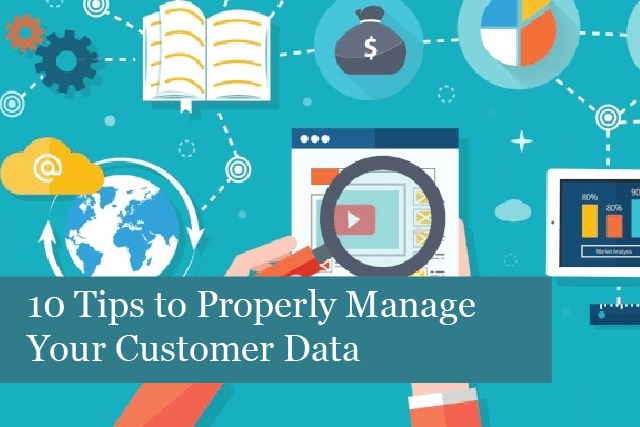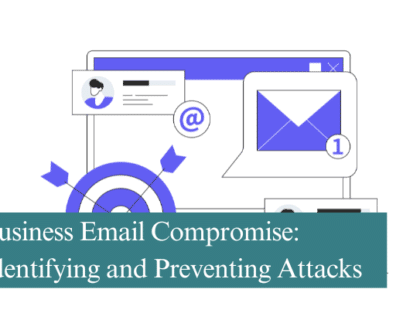
Does your company have a clear way to manage customer data? Effective management of customer data is a highly important topic these days. In fact, customer data has been called the “new oil of the digital era.” It’s an increasingly valuable commodity in our digital age.
Effective data management requires accuracy and proper processing; otherwise, “dirty data” could lead a business to make incorrect decisions or mishandling of data that leads to vulnerabilities and data breaches. Proper management is needed to keep data safe and make the right decisions that lead to business growth.
Not only that, but proper data handling is also necessary to gaining trust and credibility with customers. If customers put faith in how you handle their data, they’ll be more apt to become loyal customers over time.
What is Customer Data Management?
Customer data management is the process of gathering, organizing, analyzing, and making decisions based on that that data. This is usually done through the use of technology and software, which work to also improve customer experience, as well as provide data needed to guide the business.
Proper data management is also crucial to the security of customers and the business, in order to avoid data breeches and other issues.
How to Effectively Manage Customer Data
Data management is not an easy task, especially when the amount of data keeps increasing almost daily. So how to do go about creating an effective customer data management system?
Here are some guidelines to help your company develop and implement a better data management process.
1). Create the right strategy: some companies focus on earning from customers, which means they are looking for ways to make more money, rather than building a loyal customer base. Without a loyal customer base, a business will eventually fail, especially if they mismanage customer data. It is essential to build and keep the trust of customers, as well as improve their overall experience with the business.
For this reason, it’s best to focus on data collection, with the goal of deriving insights that guide your company in the right direction. The right direction always includes caring for customers and improving their experience. In this way, your business gains credibility and trust, while also gaining new customers.
2). Collect basic data: another issue that companies face is determining which data to collect. What data is best? What data will grow the company?
The answer is that it’s best to begin with the basics of customer data. These basic pieces of data include:
- Customer name
- Mailing address
- Phone number
- Demographic info (such as gender, age, and profession—only where truly needed)
In order to gain customer trust, it’s important to focus on only the data truly needed. For instance, if your business doesn’t need information on a customer’s profession, then avoid requesting this information. Only request the information that is needed to improve customer experience, and no more. Asking for too much information makes people feel wary, and as if their privacy is being invaded.
Another important piece of data is a record of each customer’s transactions. This data provides information on their buying habits, personality, lifestyle, and more. Your business can then use this information to present customers with personalized sales information, which can improve sales.
3). Collecting customer data: another struggle for many businesses is how to go about effectively collecting their customers’ data. One method is to ask questions, such as where they heard about the company, if they will add the company to their email list, and more. In addition, it’s possible to send each customer a survey, asking for their feedback, after each transaction.
4). Organization and storage of customer data: a spreadsheet is not an effective tool to organize, store and analyze customer data. The sheer amount of data soon overwhelms such tools. In addition, data must be securely stored. These days, it’s necessary to invest in customer relationship management software, also known as a CRM.
An excellent CRM keeps all data in one location, helps to track customer interactions and provides an overall view of each customer. Not only is this the best way to store data from customers, a CRM is also secure and is a cost-effective method to organize customer data effectively.
5). Keeping customer data secure: there are two methods that a business must implement to maintain the security of their customer’s data. The first is through the use of strong encryption. Encryption keeps everything confidential and secure including names, email addresses, as well as financial information.
The next essential key to data security is the creation of a strong cybersecurity plan. There are cybersecurity specialists available who can off their guidance on creating a strong security system.
6). Maintaining data accuracy: one of the most common issues faced by many businesses is data inaccuracy, especially where it concerns customer data. The reasons for inaccurate data in this area is due to the fact that customers may move to a new address, change their phone numbers or email address, and more. This can make it difficult to stay in touch with customers and maintain a relationship with them.
When it comes to keeping accurate records, there are methods that can be used to update records, correct errors and gather missing information. It’s necessary to have a method to update and validate all customer records on a regular basis. The overall benefit is continuing customer interaction, while ensuring your messages are hitting the correct target audience.
7). Selling customer data to third-parties: with such a huge amount of data gathered on customers, it can be tempting to sell that data to make money. However, this practice is a very quick way to losing customers.
Once customers feel their personal information and privacy have been invaded, they will not return. This leads to lowered credibility, lack of trust, and in the end, it will cost the business in lost revenues.
These are the methods your business can use to properly and effectively manage customer data. With the right method, your company will be able to refine processes, develop effective marketing strategies, as well as increase customer loyalty. Responsible data management can lead to overall business growth and an increase in revenues.
Recommended Posts

Are you making the most of your Microsoft 365 licensing?
4th July 2025


